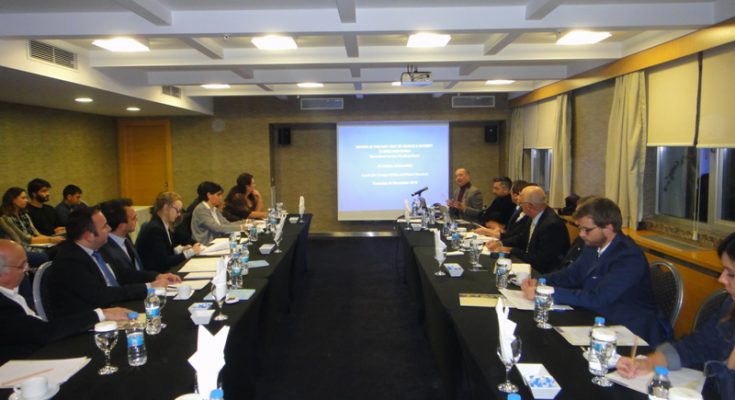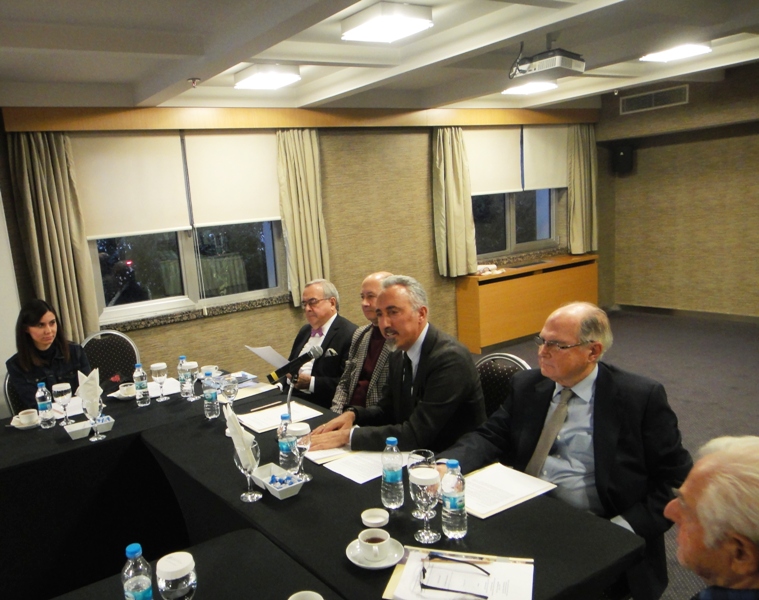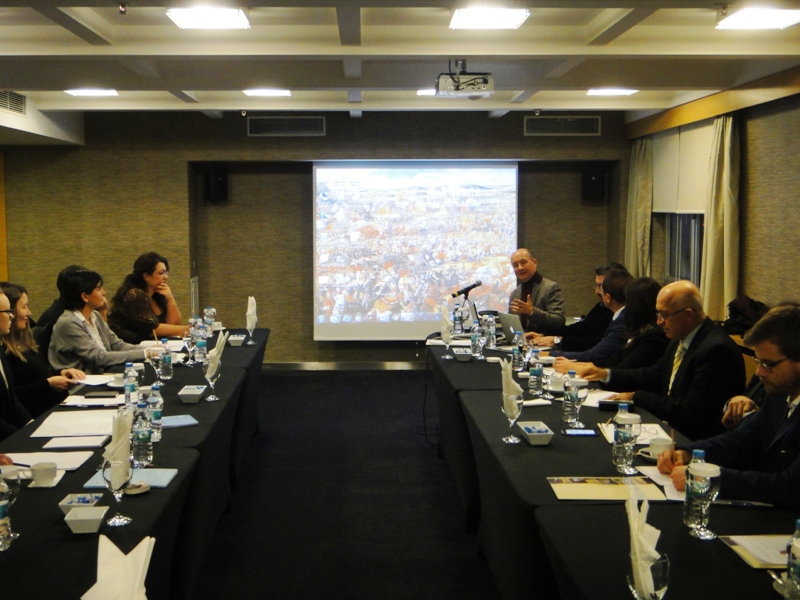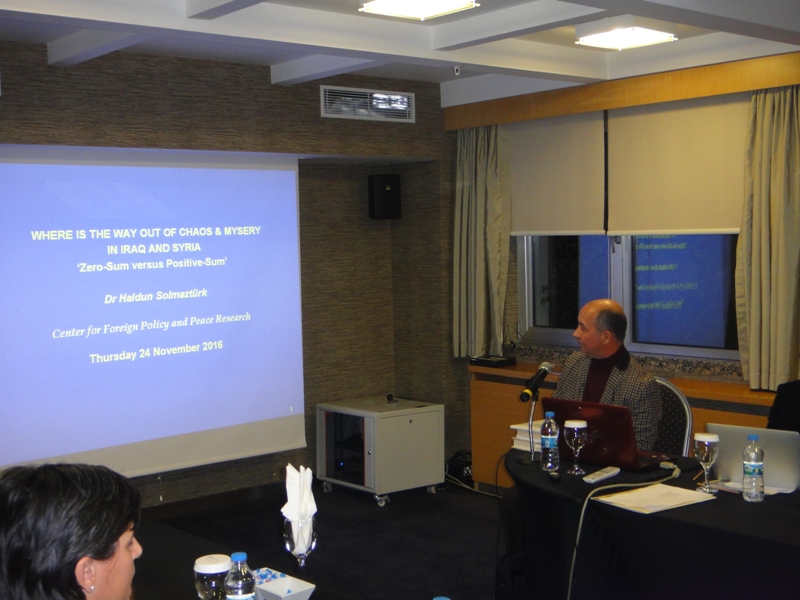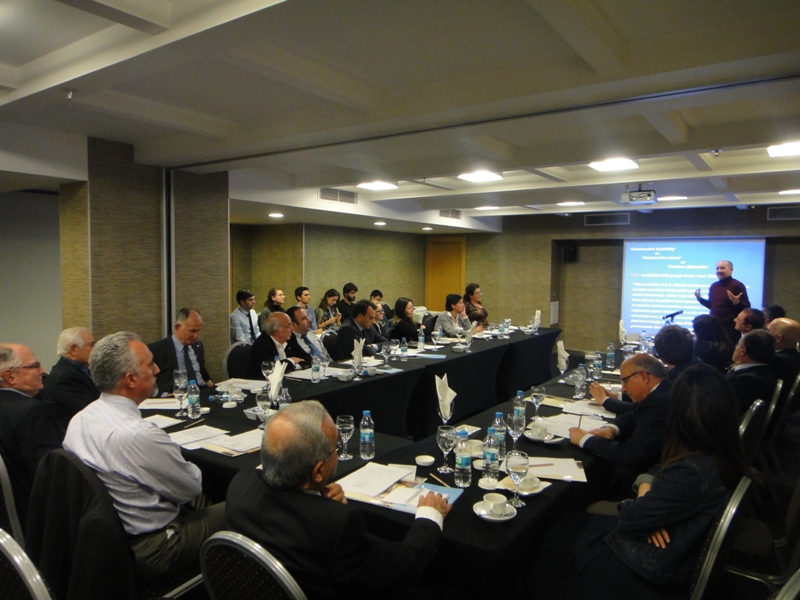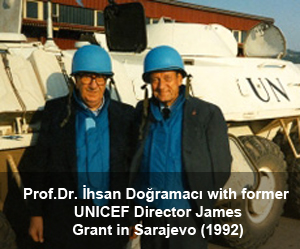“Where is the way out of chaos and misery in Iraq and Syria: Zero-Sum versus Positive Sum”
On Thursday November 24th, Dr. Haldun Solmaztürk, Director of the 21st Century Turkey Institute, addressed a Bilkent International Security and Strategy Seminar at the Bilkent Hotel.
Dr. Solmaztürk started his presentation by highlighting the effects of the terrorist attacks on the twin-towers of the World Trade Center on September 11 2001, which shocked the world with their unprecedented nature, scale and boldness. The response was the so-called ‘War on Terror,’ or an aggressive implementation of the concept of ‘constructive instability’ in the Middle East. Meanwhile, the term ‘Middle East’ itself underwent various transformations in its coverage and strategic meaning: ‘greater’ Middle East to be followed by the so-called ‘new’ Middle East. Very few experts expected the ‘new’ one to be something like the one we are faced with today: deeply divided along sectarian lines and parties entrenched against each other, while ethnic, ideological and ‘national’ fault lines crisscross these battle fronts, and cultural tectonic plates are in full swing.
He further claimed that the root causes of this state of affairs can be traced back to the ‘Coalition Provisional Authority Order Number 2: Dissolution of Entities’ dated 23 May 2003, which eventually led to the emergence of the so-called Islamic State of Iraq and the Levant (ISIL). This was followed by the crisis in Syria, which can be traced back to the UNSCR 1973 on Libya. Resolution 1973 simply authorized employment of ‘all necessary means to protect civilians’ but the actions and operations of NATO and individual member nations went far above and beyond both the letter and spirit of the resolution despite previous clear statements to the contrary by the very same parties. This sealed the fate of Syria and turned the Arab Spring into “an extremely harsh winter,” which then, surprisingly, led to a “promising Kurdish Spring”.
Before he answered participants’ questions, Dr. Solmaztürk concluded the presentation claiming that the panacea out of this turmoil is probably a new modus vivendi, rather than a ‘new map’ for the Middle East. The question of ‘who is to take up the onus to clean up the mess’ remains to be addressed. But, with hindsight, it can safely be argued that the solution scheme–whatever shape it might take–needs to be based on a positive-sum approach.

